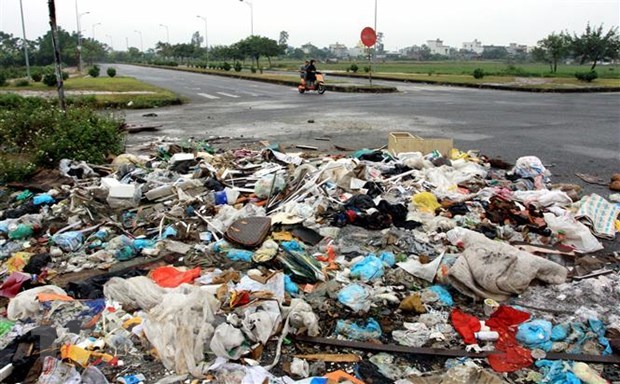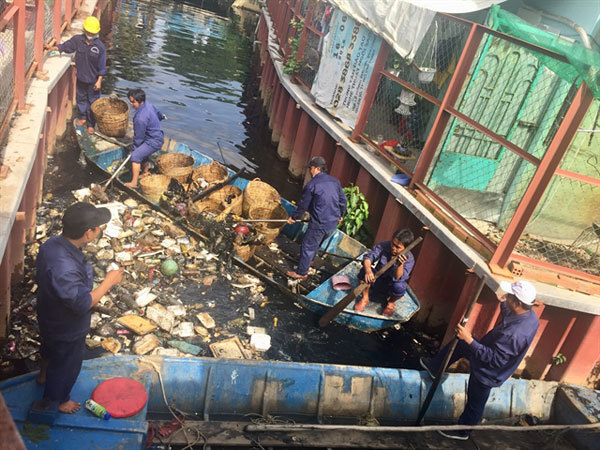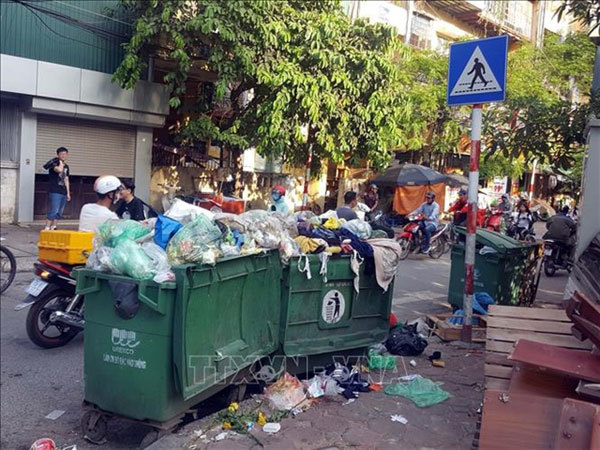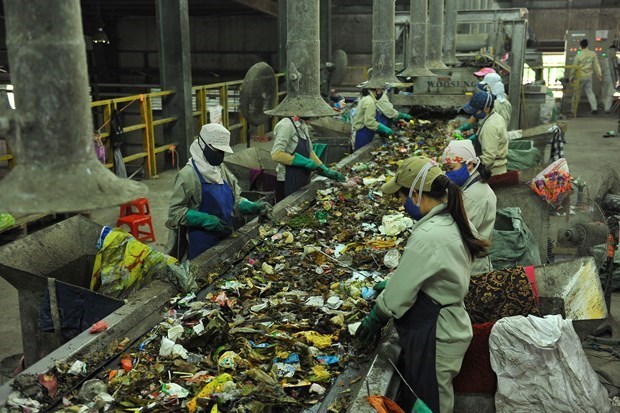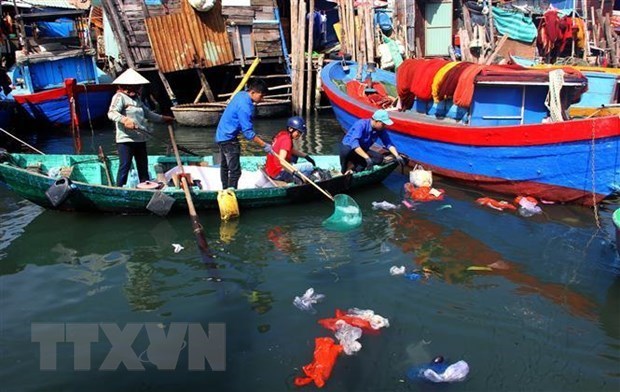- © Copyright of Vietnamnet Global.
- Tel: 024 3772 7988 Fax: (024) 37722734
- Email: evnn@vietnamnet.vn
solid waste
Update news solid waste
Domestic solid waste surges 46 percent in 10 years
Vietnam saw a 46 percent rise in the volume of domestic solid waste in the 2010-2019 period, according to the Ministry of Natural Resources and Environment.
HCM City draws up master plan on solid waste
HCM City is drawing up a master plan on solid waste management and treatment for the next five years, aiming to have 100% of its domestic solid waste to be collected and treated and at least 80% of solid household waste classified at source.
“Polluter pays principle” highlighted in VN’s amended Environment Protection Bill
 Those who discharge more waste or fail to classify their rubbish could pay higher environmental fees.
Those who discharge more waste or fail to classify their rubbish could pay higher environmental fees.
HCM City to change waste sorting method
 The Ho Chi Minh City Department of Natural Resources and Environment plans to change the way solid waste is classified at source to suit treatment technologies, its chief has said.
The Ho Chi Minh City Department of Natural Resources and Environment plans to change the way solid waste is classified at source to suit treatment technologies, its chief has said.
Plastic pollution a disease: experts
 The way we design, produce, transform, use and dispose of plastic needs rethinking due to the vast release of the plastic waste into the ocean, and innovative circular economy approaches could be one way to go, experts have said.
The way we design, produce, transform, use and dispose of plastic needs rethinking due to the vast release of the plastic waste into the ocean, and innovative circular economy approaches could be one way to go, experts have said.
Vietnam's action plan hopes to reduce 75 percent of marine plastic waste
 Prime Minister Nguyen Xuan Phuc has issued a national action plan on marine plastic waste management by 2030 that aims to reduce 75 percent of plastic debris in the ocean in the next 10 years.
Prime Minister Nguyen Xuan Phuc has issued a national action plan on marine plastic waste management by 2030 that aims to reduce 75 percent of plastic debris in the ocean in the next 10 years.
The path of domestic garbage in Hanoi
 Hanoi has opened many sanitary waste collection points, but the capital city is still at risk of being flooded with garbage.
Hanoi has opened many sanitary waste collection points, but the capital city is still at risk of being flooded with garbage.
Adoption of circular economy vital to solid waste settlement
 Businesses which reuse materials are the lifeline of Vietnam’s environmental future, a workshop in Hanoi was told on Wednesday.
Businesses which reuse materials are the lifeline of Vietnam’s environmental future, a workshop in Hanoi was told on Wednesday.
Waste treatment: Vietnam needs policy to encourage competition
Vietnam has investors who are willing to develop waste treatment plants, but startups, when contacting local authorities, are told that there is no waste to treat, says Dang Huy Dong, former Deputy Minister of Planning and Investment.
Con Dao Island runs out of landfill, ships trash to mainland
VietNamNet Bridge – The southern coastal province of Ba Ria-Vung Tau has approved Con Dao District’s proposal to ship domestic solid waste from the island to a landfill on the mainland.
Solid waste needs better treatment
VietNamNet Bridge – The amount of solid waste in Vietnam has kept surging with more complicated components as a result of increasing population and human activities, according to a report released.
Waste separation demands so much more
VietNamNet Bridge – In a rather sudden and widely applauded move, HCM City authorities have issued regulations forcing the city’s folk to start separating their solid waste at source.
Vietnam seeks technologies to turn waste into resources
VietNamNet Bridge - More than 77 percent of solid waste in Vietnam is buried, while 80 percent of landfills are unhygienic.
Illegal shrimp hatcheries cause environmental damage
VietNamNet Bridge - In many shrimp cultivation areas, farmers are not treating waste water from shrimp ponds, but are allowing untreated waste water to go directly into the environment.
Is Vietnam following the wrong path in treating solid waste?
Local authorities are trying to find advanced technologies for their waste treatment projects, but they appear to be satisfied with superficial solutions that do not treat the problem in a sustainable way.
Hanoi calls for private investment in solid waste treatment technology
VietNamNet Bridge - Landfills remain the basic waste treatment method in Hanoi, causing serious pollution and a waste of land.
Solid, hazardous waste discharged, but little collected
VietNamNet Bridge - The increase in population and different kinds of production in the country have led to an increase in solid waste.
Hanoi calls for investment to treat domestic solid waste
VietNamNet Bridge - Hanoi needs investment to apply new comprehensive measures to sort waste at source, organize waste collection, and treat waste with modern technologies.
Doing her part to clean up the environment
VietNamNet Bridge – Associate Professor Dr Dang Thi Cam Ha, a former chief of the Environmental Biotechnology Department of the Institute of Biotechnology, was honoured with the 2015 Kovalevskaya for her research on environmental protection,
New app helps people find what they need and share what they have
VietNamNet Bridge – A new app has been created to help people find what they need and share what they have.
